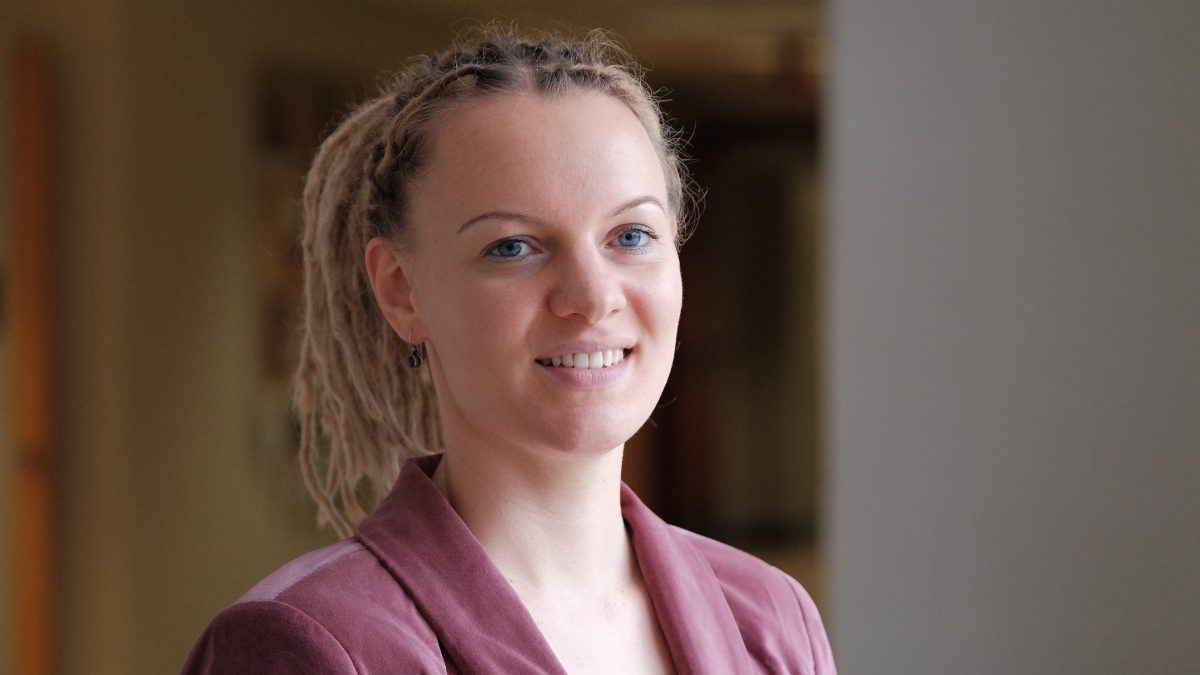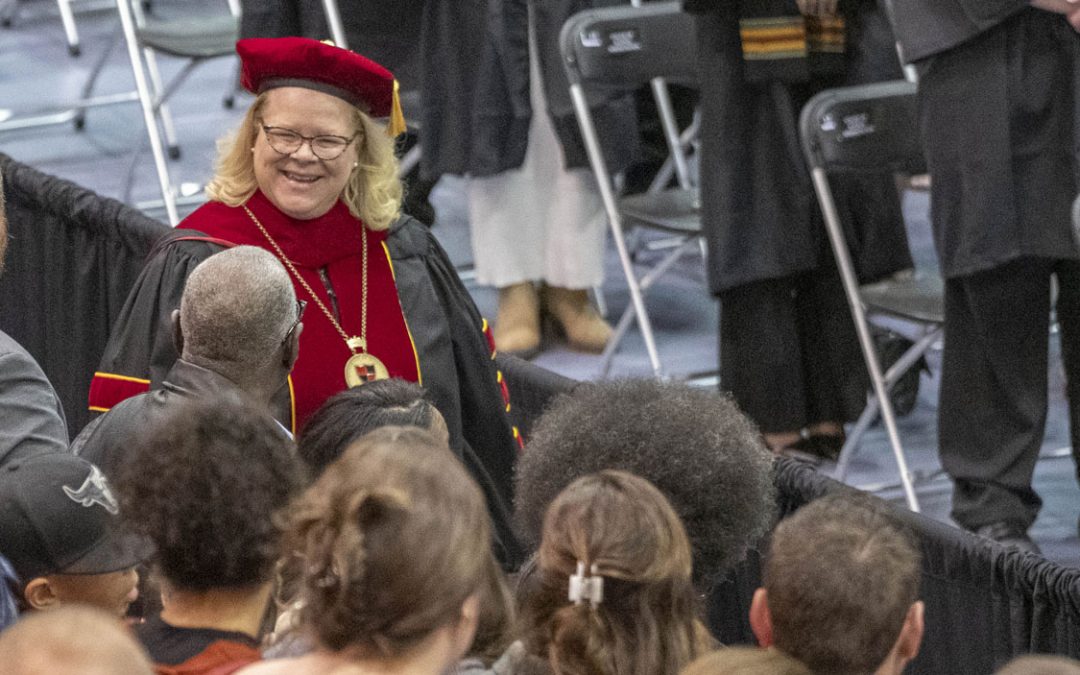
Sandra Langeslag, an associate professor in the Department of Psychological Sciences, helped explain the science of love in a recent story in the Pittsburgh Post-Gazette. (Photo by August Jennewein)
Have you ever wondered what happens to your brain when you’re in love?
Just in time for Valentine’s Day this Friday, Sandra Langeslag, an associate professor in the Department of Psychological Sciences at the University of Missouri–St. Louis, helped break down the science of love in a story for the Pittsburgh Post-Gazette.
Langeslag, who has been studying how love impacts memory and attention for nearly 20 years, explained how romantic love affects cognition, particularly when it comes to emotional events, such as a fight with your significant other or the first time you said, “I love you.”
“When you are in love with someone, then that person becomes a very emotional stimulus to you, not to other people,” Langeslag told writer Allie Miller. “To other people it’s just a random person, but to you, they become very special.”
Langeslag went on to explain how she has been able to demonstrate the relationship between love and internal memory and attention processes through studies using brain scans. Specifically, she has shown participants photos of the person they love, followed by photos of friends and attractive strangers. The brain’s response, which is measured through brain waves, showed participants had a stronger reaction to photos of the person they love.
Langeslag also explained how evolution makes the love felt between romantic partners different from the love felt for friends or family. Read the full story at the Post-Gazette website.














